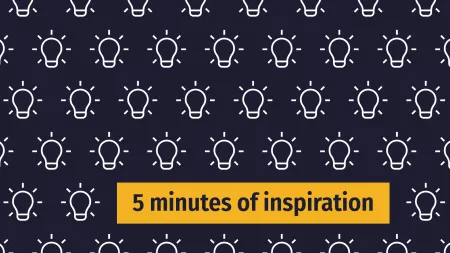In the 5 minutes it takes you to read this post, 152 girls under the age of 18 will get married—whether they want to or not. 12.5 of those girls are getting married because of the stresses COVID-19 has put on their lives, families, and communities. That’s hurting the girls and their life chances. It’s also hurting their communities, their nations, and generations to come.
CARE is committed to learn from and support diverse women and girls to challenge injustice, and strive for a world that is equal for all genders. Child and early forced marriage (CEFM) undermines the effectiveness of those efforts – including health, education, and overall equality – for girls in their families, communities, and world at large. Through the support of The Kendeda Fund, the multi-country Tipping Point initiative (2013-2023) addresses the root causes of CEFM through centering the voices and leadership of adolescent girls, evidence generation for gender-transformative approaches, and strategic advocacy in South Asia, West Africa, the Middle East, and North Africa.
From 2017 to 2020, the Tipping Point initiative has worked with partners who bring years of experience in Tipping Point communities to our collaborative effort; more specifically, Siddartha Samuyadayik Samaj (SSS) and Dalit Social Development Center (DSDC) in Nepal and Jaintia Shinnomul Songstha, Gram Bikash Kendra (GBK), the Association of Slum Dwellers in Bangladesh.Together directly reaching a total of 63,386 people throughout Phase 1 and Phase 2, in Bangladesh and Nepal. Out of this, the number of girls and women reached are 43,398. Through collective action and influencing activities, the initiative has additionally reached about 116,945 people.
What changes have we seen?
- Girls feel more confident because they have had more changes to lead. In Bangladesh, Tipping Point facilitated a safety mapping between the girls and boys. The adolescent girls presented the findings to local officials, raising their concerns, and succeeded in receiving funds to place lights in the identified unsafe locations.
- Adolescent girls are challenging local norms. Recognizing dowry as harmful, adolescent girls in Bangladesh led a public exhibition throughout the community. After talking with boys, girls, parents, and leaders, they documented their conversations through comic character drawings answering questions like “Why the dowry?” and “How can we stop it?”. Testimonials from community members, including their vows to oppose the dowry within their families, were brought to public view to increase accountability through the comic exhibitions.
- Boys are getting involved to support girls. Adolescent girls in Nepal are leading activities engaging boys to talk openly about menstruation.Girls learned to make washable sanitary napkins with the boys; helping with Tackling the Taboo around menstruation and resulting in a big shift in social norms—the boy are discussing menstruation and learning to sew with a needle and thread; making the menstrual pads and then distributing them in their own families, the boys are acknowledging that girls issues are their issues too.
- Girls are advocating for their education – even when times get tough. Access to education during the pandemic has been a challenge for more reasons than one, and even more so for girls; whose parents are prioritizing their sons’ education, which puts daughters in danger of marriage (if she’s not going to school, the pressure mounts). However, girls are showing increased ability to advocate for their own education, including by communicating their aspirations through a community exhibition of drawings depicting their own ambitions and acknowledging the women who inspire them. As a result, their brothers have stepped up as allies, and parents are showing resilience, despite economic stresses, by centering their daughters’ priorities.
- Youth are engaging in national level advocacy. Beyond the local level connections established, youth activists in Bangladesh, trained by Tipping Point, have formed a network called Living out Loud to strengthen and consolidate the voices of adolescents, increasing their representation at the national level. This network will continue to engage in larger and more established movement spaces over the next year.
How did we get there?
- Opening space for activism. Tipping Point facilitated weekly sessions (before the pandemic) on gender inequity and sexual and reproductive health and promoted financial literacy through adolescent Village Savings and Loan Associations (VSLAs), which allow space for girls to save together while building a foundation business skills.
- Facilitating conversations for intergenerational change. The initiative also engaged adolescents and their parents in intergenerational dialogues and community events that challenge the gendered division of labor and mobility and communication control of girls. Activist girls with opportunities to connect increase their access to technology and education, and shift the inequitable norms that lead to child marriage.
- Prioritizing locally-driven change. CARE relies on local solutions to respond to the needs of the communities where we work for a sustainable end to child marriage. In Phase 1 and Phase 2, Tipping Point worked with partners who bring years of experience in Tipping Point communities to our collaborative effort. In Phase 3, Tipping Point has shifted its partnership model to connect girl activists with social movements, women’s rights and girls’ rights organizations and coalitions that seek to expand the voices, choices and agency of girls. This diverse set of actors in each context is instrumental to driving girl-centered change.
- Adapting to the needs of girls during COVID-19. Supporting girl activists through mobile devices during the COVID-19 shelter-in-place directives, Tipping Point took the opportunity of more men being at home consistently to shift gender norms and relations to become more equitable. Norms that were addressed include the household division of labor and unpaid care work – e.g. water collection and work related to hygiene practices – which we know can positively affect the incidences of gender-based violence, including child marriage.
What’s next?
The baseline reports of Tipping Point’s Phase 2 randomized control trial evaluation can be found here. The endline results will be published in 2022.
